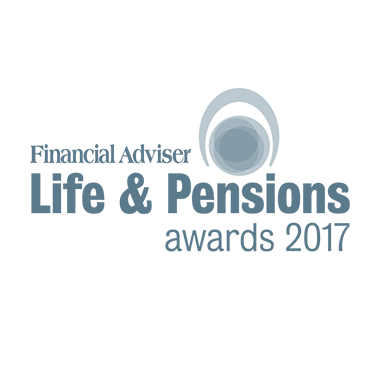Weighing Up Your Options
Often referred to as a ‘nest egg’, you might be considering a long-term investment option to make your money work harder and give yourself more financial choices for the future.
The most common ways to do this are:
- Investing in a second property and renting it out
- Buying a larger home to sell at a later data
- Paying into a pension
Why do people choose property over a pension?
Bricks and mortar investment goes back a long time. It’s the concept that your money will be safer in property, but it is more likely to be the physical ownership of a house that brings comfort – you can see and touch your investment.
It’s also true that for many, property values have steadily increased over time, again providing a feeling of security.
But all investment carries risk, and property is no different; that’s why a pension includes various types of investment, not solely property.
How Can I Make My Money Grow?
Pension
Earn up to 13.3% annually
Your workplace pension, which is based on a number of investments, could see an annual increase in value of up to 13.3% based on UK averages, but your investment may go down.
The government tops up your pension pot
If you qualify, you’ll receive an extra 20% of your contributions from the government based on current taxation legislation. You might receive more if you’re a higher-rate taxpayer.
Your employer pays into your pension
Pensions are highly regulated, meaning that your employer needs to contribute at least 3% of your earnings if you qualify.
Property
Earn up to 2.9% annually
The UK property market is currently growing steadily and consistently at 2.9%, but look back, and you’ll see the same ups and downs as most investments.
If you rent your property out, you might make a regular monthly profit (yield)
With a 3% to 8% profit after costs, your bank account could look very positive each month. Yield depends on location, a paying tenant, no damage, a healthy market, and no gaps in tenancy, though.
Cash from downsizing
There are costs and taxes associated with selling property, and if you’re downsizing, your next property may have experienced the same increase in value – leaving you with less profit.
Tax Relief On Pension & Property
Pension
25% tax-free cash
You might be able to access up to 25% of your pension upon retirement, and it’s tax-free. The retirement age for a private pension is currently 55 and 57 from 2028. All future payments after this will be subject to income tax, though.
No tax on pension growth
Your pension can grow free of tax, whether this comes from dividends or interest. There is no UK income tax or capital gains tax while your funds are invested within your pension.
Think carefully about withdrawing cash
You might be tempted to draw down cash from your pension early, but if you do not need it, you could earn more by keeping it in your pension and only paying tax on the income you need.
Property
It costs to sell your property
Stamp duty is a tax that is calculated based on the sale value of a residential property. The government sets a cap on the value before you start paying, so it sometimes pays to choose cheaper properties if you plan to sell on.
Capital gains tax (CGT)
You might need to pay up to 28% in capital gains tax if you own more than one property. CGT is concerned with an increase in the property’s value when you sell it and is dependent on profit achieved.
Rent as a taxable income
As with all income, you will need to pay tax at your marginal rate, including rent. All UK income is subject to taxation rules, which include a personal allowance before tax is due.
Access to cash
Pension
Access cash at 55 or 57 (2028)
You’ll need to wait until you’re 55/57 to access your pension.
Cash lump sum
Unless you have a defined benefit (final salary) pension, when you reach 55/57, you’ll usually have the choice of taking up to 25% of your pension value out tax-free.
Monthly Cash
You can also start drawing down your pension on a monthly basis from 55/57.
It’s important to consider the impact of drawing down on your pension early or withdrawing a cash sum, as it may mean you have less each month overall.
Visit Pension Wise or speak to an adviser before you make any financial decisions.
Property
You choose when to sell
As you own the property, you can choose when to sell and access any profits made.
Sale value is market dependent
Your sale price is market and buyer dependent, though. The sale process takes a minimum of three months, and you will need to deduct money to pay tax and selling costs.
Rental income can be volatile
You’ll benefit from monthly cash from rent if you let your property out.
You’ll need to consider what would happen if your tenants didn’t pay, you had large repair bills, or the property was vacant.
What Are The Risks Behind Pensions & Property?
Pension
Your investments
When you choose a pension, you can pick different types of investments available on the stock market.
Your pension’s performance depends on how the stock market, and in particular, your chosen investments perform — they can go up or down. You can invest in property with a pension.
A Balanced risk portfolio
A pension adviser will discuss how you feel about risk to understand how best to invest funds within your pension. If you don’t pick, a default fund will be chosen to spread the risk across a wide range of investments.
Property
Future income invested in one investment
Unlike a pension, you have your money in one or more properties. The performance of your investment is based on market value.
Professional landlords often choose to own multiple properties of different types and areas to balance the risk of one underperforming property.
Profit is not guaranteed
All investments carry risk, property included. There are high costs for purchasing, maintaining, and selling a property, which can reduce profit. Rental properties also have the risk of vacancy, damage, or failure to pay.
Associated Costs
Cost Of Pension Investment
You don’t have to start your pension with a deposit, and some policies request a minimum monthly contribution of just £25.
If you are auto-enrolled as part of a workplace pension (and qualify), your employer will make monthly contributions in addition.
You may be charged a fee to review, change, or manage your pension, but this will be discussed with you in advance.
Your pension provider will often charge a fee as a percentage of your investment fund’s value (pension pot) to manage your pension moving forward.
Cost Of Property Investment
From raising a 25% deposit for a second home to the interest for borrowing and associated fees, property can get quite expensive.
Unlike buying your own home, buy-to-let mortgages often look to balance risk by requesting a higher deposit.
If you sell, you face estate agent and solicitor fees, and dependent on value and profit made, capital gains tax and stamp duty land tax.
If you rent the property out, you’ll need to factor in various landlord insurance policies, the cost of bringing the property up to legal standards, and repair bills.
House prices have also jumped to record levels in the UK, making even a small investment a big financial decision.
Management
Managing Your Pension
You’ll need to manage how much money you contribute to your pension and investments.
Not sure what a good retirement income is? That’s okay; a lot of people don’t. Considering whether you’d like to travel, eat out, and what hobbies you have can help you budget each month now for later in life.
The good news is that your pension adviser can help you do this.
You’ll need to review your pension regularly to ensure it still meets your current circumstances and future lifestyle goals.
You might choose to merge multiple pensions, change the type of investments you have, or simply discuss new options to grow your wealth.
Managing Your Property
Selling property is a timely, expensive, and often stressful experience.
Your profits are also closely connected with factors out of your control, such as the government’s legislation on tax and profit, the market value, and what buyers are willing to offer.
You’ll also need to consider the work and cost to get a property ready for sale to ensure you maximise your investment’s potential.
Being a Landlord
Being a landlord means that you have legal responsibilities for safety, so you’ll need to ensure your property complies with legislation.
Should your property be vacant, damaged, or used for squatting, you could be exposed to financial loss, which can be very stressful.
Is It Possible To Do Both?
If you’d like to invest, but you’re still unsure what’s right for you, it’s best to talk to a financial adviser.
You might be able to consider a pension as an alternative to investing in property, where you can put some of your funds in a property portfolio. You might consider a pension scheme and a buy-to-let property, so you can balance the risk and avoid placing your money in one investment.
STEP 1 – Discovery Meeting
The initial meeting is at our cost. You will meet one of our expert advisers to discuss your current financial position. We will establish the facts and find out more about you. Looking to the future, we will get to know your financial aims and long-term goals. We will discuss your attitude, tolerance and capacity for risk.
STEP 2 – Analyse & Assess
Following on from our initial meeting, we will liaise with your existing product providers to build a picture of your current investments. Within a few weeks, we will gather all the relevant information and fully analyse your existing provisions to assess whether they are aligned with your objectives.
STEP 3 – Present Plan & Discuss
Next, we will prepare a comprehensive report providing detailed recommendations of how to move your current investments or where to place additional investment based on your desired financial outcomes. From here, you’ll meet with your adviser to talk through the findings and explain the recommendations.
STEP 4 – Agree Plan & Implement
Together, you’ll come to an agreement on how to move forward with your investments. We’ll implement the recommendations, complete the necessary paperwork required by our regulator, the Financial Conduct Authority, our own forms and any forms required by the provider.
STEP 5 – Ongoing Management & Support
Once your investments have been made, our service doesn’t end there. We’ll continue to work with you over the following months and years to ensure your investments remain aligned with your aims, even as these change.










